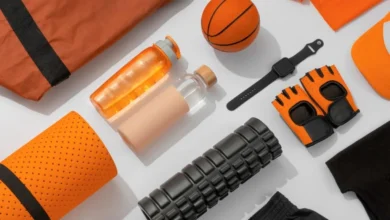How to Keep Mice Out of Your House: Effective Tips and Strategies
Mice Out of Your House

Introduction
Mice might seem harmless, but when they invade your home, they can cause many problems. From chewing through electrical wires to contaminating food, these tiny rodents can be a significant nuisance. You’re not alone if you’re struggling to keep mice out of your house. Many homeowners face this challenge, especially as the weather changes and mice seek shelter indoors. Fortunately, there are several strategies you can use to protect your home from these unwelcome guests.What Household Tricks Will Keep Mice and Rats Far, Far Away?
This article explores the most effective ways to keep mice out of your house, including preventive measures, deterrents, and solutions for when mice have already made their way inside. Following these tips, you can create an uninviting environment for mice and keep your home safe and clean.Cleaning Essentials That Every Facility Needs!
Understanding Why Mice Invade Homes
Before diving into how to keep mice out, it’s essential to understand why they invade homes in the first place. Mice are primarily driven by their need for food, water, and shelter. As the weather cools, especially in fall and winter, they seek out warm places to nest, and your home can be an attractive option.
Common Reasons Mice Enter Homes:
- Food Sources: Mice are opportunistic feeders and will eat almost anything, including grains, fruits, vegetables, and even scraps from your trash. If food is easily accessible, mice are more likely to move in.
- Shelter: Mice prefer dark, quiet places to nest, such as attics, basements, and inside walls. These areas provide them with the warmth and security they need to raise their young.
- Water: Like all animals, mice need water to survive. Leaky pipes, pet water dishes, and condensation on pipes can provide them with a water source.
Preventing Mice from Entering Your Home
The best way to keep mice out of your house is to prevent them from getting inside in the first place. Here are some effective strategies for keeping these pests at bay:
- Seal Entry Points
Mice can squeeze through tiny openings, sometimes as small as a dime. To keep them out, inspect the exterior of your home and seal any potential entry points. Pay close attention to areas where utilities enter your home, such as around pipes and electrical wiring.
Tips for Sealing Entry Points:
- Use caulk or expanding foam to seal cracks and gaps in your home’s foundation.
- Install door sweeps on exterior doors to prevent mice from slipping under them.
- Check for gaps around windows and repair any damaged screens.
- Keep Your Home Clean
A clean home is less attractive to mice. Regularly clean up crumbs and spills, and store food in airtight containers. Don’t leave dirty dishes in the sink overnight; clean up pet food dishes.
Cleaning Tips:
- Vacuum regularly, especially in the kitchen and dining areas.
- Store dry goods, such as cereals and grains, in glass or metal containers.
- Keep trash cans sealed and take out the garbage regularly.
- Eliminate Food and Water Sources
As mentioned earlier, food and water sources can attract mice. By eliminating these, you can make your home less appealing to them.
Elimination Strategies:
- Fix any leaky faucets or pipes to remove water sources.
- Store pet food in sealed containers and avoid leaving it out overnight.
- Keep your yard free of fallen fruit and other potential food sources.
- Maintain Your Yard
Mice often enter homes from nearby vegetation, so keeping your yard tidy can help deter them. Trim back bushes and trees close to your home, and keep the grass mowed.
Yard Maintenance Tips:
- Remove piles of leaves, wood, or debris where mice might nest.
- Store firewood at least 20 feet from your home.
- Keep compost bins covered and well-maintained.
Natural Deterrents to Keep Mice Out
Several options are available if you’re looking for a more natural way to keep mice out of your house. These deterrents can effectively make your home less attractive to mice without using harmful chemicals.
- Peppermint Oil
Peppermint oil is a natural mouse deterrent. The pungent smell is unpleasant to mice and can keep them away from your home.
How to Use Peppermint Oil:
- Soak cotton balls in peppermint oil and place them in areas where you’ve seen mice or where they might enter.
- Reapply the oil every few days to keep the scent strong.
- Ultrasonic Devices
Ultrasonic devices emit high-frequency sound waves that are supposed to repel mice. While some people find them compelling, their success can vary and may only work in some situations.
Using Ultrasonic Devices:
- Place the devices in areas where mice are likely to enter, such as near doors and windows.
- Be sure to follow the manufacturer’s instructions for optimal placement.
- DIY Mouse Repellents
There are several DIY mouse repellents that you can make at home using common household ingredients. These can be effective in deterring mice from entering your home.
DIY Repellent Recipes:
- Mix equal vinegar and water in a spray bottle around entry points.
- Create a mixture of cayenne pepper, garlic, and water and spray it in areas where mice have been seen.
What to Do If Mice Have Already Entered Your Home
Taking action quickly is essential if you’ve noticed mice in your home, such as droppings or gnawed food packages. The longer you wait, the more difficult it can be to eliminate them.
- Set Traps
Traps are one of the most effective ways to catch mice entering your home. Several types of traps are available, including snap, glue, and live traps.
Types of Mouse Traps:
- Snap Traps: These traditional mouse traps use a spring-loaded bar to kill the mouse. They are effective but must be placed carefully to avoid harming pets or children.
- Glue Traps: Glue traps trap the mouse on a sticky surface. They are less humane than other options, as the mouse often suffers before dying.
- Live Traps: Live traps capture the mouse without killing it, allowing you to release it far from your home. However, mice can often find their way back if released too close to your house.
- Use Baits and Rodenticides
Baits and rodenticides can also be effective in controlling a mouse infestation. However, they should be used cautiously, especially if you have pets or small children.
Using Baits Safely:
- Place baits where mice are active but out of reach of pets and children.
- Use tamper-resistant bait stations to prevent accidental ingestion by non-target animals.
- Call a Professional Exterminator
If you’re dealing with a large infestation or your efforts to eliminate mice have been unsuccessful, it may be time to call a professional exterminator. They have the experience and tools necessary to eliminate mice from your home and can provide advice on preventing future infestations.
Final Thoughts
Keeping mice out of your house requires a combination of preventive measures, natural deterrents, and sometimes professional help. By understanding why mice invade homes and taking steps to eliminate food, water, and shelter, you can make your home a less attractive option for these pests. Remember to regularly inspect your home for potential entry points and seal them promptly. If mice get inside, act quickly to remove them before the problem gets out of hand.
Frequently Asked Questions
Q1: What is the most effective way to keep mice out of my house?
A1: The most effective way to keep mice out of your house is to seal all entry points, keep your home clean, and eliminate food and water sources. Regularly inspect your home for gaps, cracks, and other potential entry points, and repair them promptly. Additionally, maintaining a clean house and yard can deter mice from entering.
Q2: Can peppermint oil keep mice away?
A2: Yes, peppermint oil can be an effective natural deterrent for mice. The pungent smell is unpleasant to them, and placing cotton balls soaked in peppermint oil near entry points can help keep mice out of your home. However, it may not work in all situations and should be used with other preventive measures.
Q3: Are ultrasonic devices effective in keeping mice out of the house?
A3: Ultrasonic devices can sometimes be effective, but their success varies. These devices emit high-frequency sound waves that are supposed to repel mice but may not work in all situations. It is essential to use them as part of a comprehensive strategy that includes sealing entry points and eliminating food sources.
Q4: What should I do if I already have mice?
A4: If you already have mice in your house, immediately remove them. Set traps where you’ve seen signs of mice, use baits and rodenticides cautiously and consider calling a professional exterminator if the infestation is significant or persistent.
Q5: How can I prevent mice from returning once I’ve gotten rid of them?
A5: To prevent mice from returning, continue to seal entry points, keep your home clean, and eliminate food and water sources. Regularly inspect your home for potential entry points and repair them promptly. Additionally, maintain your yard to reduce the likelihood of mice nesting nearby.
https://www.ecoguardpestmanagement.com/pest-resources/what-repels-mice
4o


